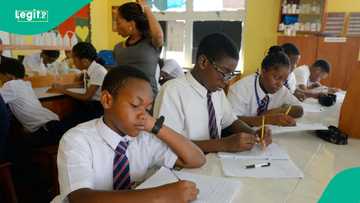Why Nigerian Men Are Requesting Marriage Lists from Multiple Women Before Committing
- A new trend sees men requesting “marriage lists” from multiple women, viewing the age-old institution through a distinctly financial lens
- This practice, driven by rising costs and economic realities, turns marriage into a calculated transaction, sparking ethical questions about love, worth, and tradition
- As financial considerations increasingly shape personal choices, the delicate balance between practicality and partnership is more crucial than ever
In recent years, marriage—a tradition rooted in time and ritual—has morphed in response to the pressures of shifting social values and economic strains.
Nowhere is this more evident than in the rising trend in Nigeria where men seek “marriage lists” from multiple women before committing to a union.

Source: Getty Images
This new practice, at once calculating and curious, serves as an attempt to navigate the mounting costs of marriage by requesting detailed estimates of financial obligations from each prospective bride.
Economic hardship driving financial decisions
These “marriage lists” outline all expected contributions for a groom, including dowries, customary gifts, and other cultural commitments. hese “marriage lists” outline all expected contributions for a groom, including dowries, customary gifts, and other cultural commitments.
PAY ATTENTION: Legit.ng Needs Your Help! Take our Survey Now and See Improvements at LEGIT.NG Tomorrow
Historically, dowries provided a measure of security for the bride’s family, but today, they fluctuate widely, subject to cultural, regional, and individual interpretations.
In this new reality, men are looking at these lists with an analytical eye, seeking the partnership that aligns best with their economic means.
While practical in intent, this trend lays bare questions around the very essence of marriage.
Marriage as transaction
For many, it represents a dangerous shift—marriage as a transaction rather than a union rooted in companionship and love.
By comparing the financial burdens associated with each potential bride, these men may gain clarity on economic feasibility, yet risk commodifying the relationship itself.
In many cultures, marriage has always carried a financial dimension, with dowries and gifts marking the union.
But for some, love and partnership have taken precedence over these considerations. In this modern age, the practice of evaluating marriage lists could be seen as a rational step—yet it edges dangerously close to placing financial calculation above personal connection.
It draws a stark line: Are women to be valued solely for the financial demands they pose? The practice may propagate harmful stereotypes, casting women as commodities and reinforcing a perspective where a bride’s worth is tied to numbers rather than qualities.
Lady laments after displaying N120 paid as her bride price
Meanwhile, Legit.ng earlier reported that a Nigerian lady, @tegaoflagos, has jocularly expressed displeasure over the amount paid as her bride price.
@tegaoflagos shared a clip capturing the moment her husband-to-be paid N120 as he sought her hand in marriage.
PAY ATTENTION: Сheck out news that is picked exactly for YOU ➡️ find the “Recommended for you” block on the home page and enjoy!
Source: Legit.ng




